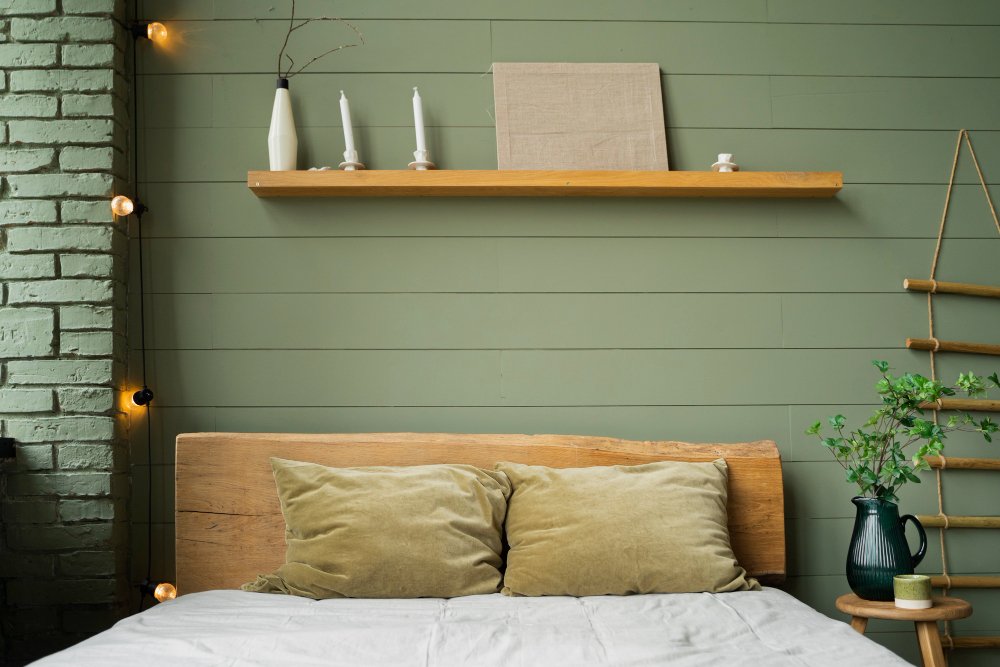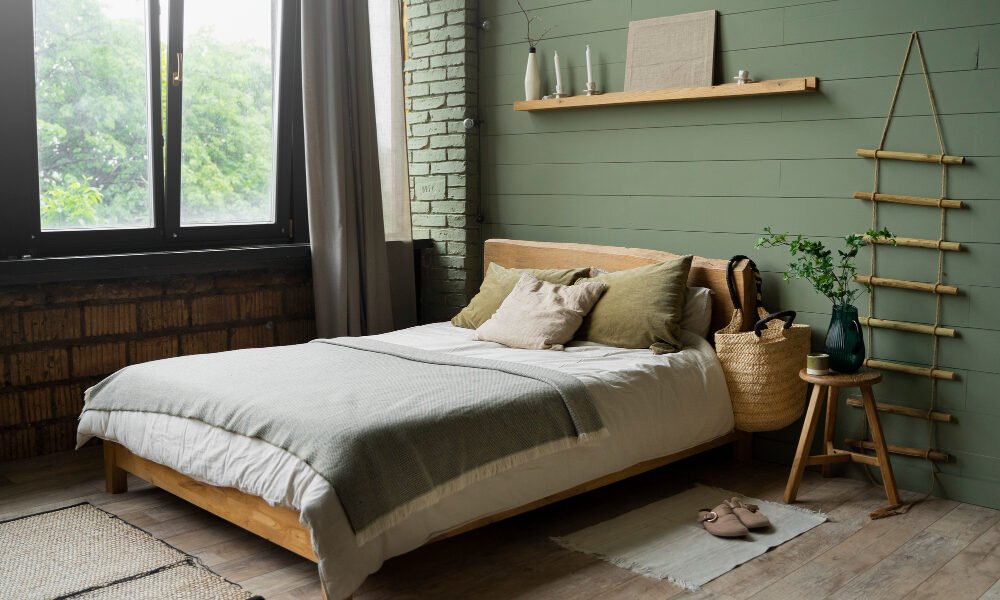Crafting a sustainable bedroom encompasses more than just swapping out light bulbs or adding recycling bins; it involves every facet of your space, including your bedding. Opting for eco-friendly bedding options not only benefits the planet but also fosters a healthier sleep environment for you. Whether it’s selecting materials sourced sustainably or prioritising manufacturing processes that minimise environmental harm, numerous choices exist to aid in creating a greener, more sustainable bedroom. By embracing organic cotton, bamboo, hemp, Tencel, or wool bedding, you not only reduce your carbon footprint but also elevate your sleep quality. Among these options, T & A Textiles Duvet Covers stand out as an exemplary choice, marrying sustainability with comfort and style to complete your eco-conscious bedroom sanctuary. There are several choices available to help you craft a greener, more sustainable bedroom.

Organic Cotton
Produced without synthetic pesticides or fertilizers, organic cotton bedding fosters soil health and conserves water compared to conventional cotton farming. Seek out certifications such as GOTS (Global Organic Textile Standard) to authenticate the organic cotton bedding’s purity and sustainability. By opting for organic cotton bedding, you actively support eco-friendly agricultural practices while enjoying the comfort and peace of mind it provides.
Bamboo Fabric for Sustainable Bedroom
Renowned for its sustainability and luxurious texture, bamboo bedding is capturing the attention of environmentally conscious consumers. Bamboo’s rapid growth and low water requirements position it as an exceptionally renewable resource, aligning with eco-friendly principles. Its innate breathability, moisture-wicking properties, and hypoallergenic nature cater to individuals with sensitive skin or allergies, ensuring a restful and comfortable sleep experience. Embrace bamboo bedding to not only enhance your sustainable bedroom ambience but also to contribute positively to our planet’s sustainability efforts, one peaceful night’s sleep at a time.

Hemp Bedding
Emerging as a frontrunner in eco-friendly materials, hemp stands out for its minimal water usage and pesticide-free cultivation. Hemp bedding, renowned for its durability, breathability, and natural resistance to mould and mildew, offers a sustainable and comfortable sleep solution. Beyond its benefits for your bedroom, hemp cultivation plays a crucial role in soil health improvement, contributing to environmental conservation efforts. By choosing hemp bedding, you actively support sustainable farming practices while enjoying a restful night’s sleep in a healthier, greener environment.
Wool
Wool bedding, derived from sheep, stands as a renewable and biodegradable resource. Sustainable wool farming emphasises animal welfare and responsible land management. Wool bedding naturally controls temperature, absorbs moisture, and repels dust mites and mould, making it ideal for environmentally conscious consumers. This bedding option actively promotes sustainability, supporting ecosystems and reducing environmental impact. Its inherent properties contribute to a comfortable and healthy sleep environment, ensuring both ecological and personal well-being. Moreover, investing in wool bedding aligns with eco-friendly principles, fostering a more sustainable lifestyle. Overall, choosing wool bedding signifies a commitment to environmental responsibility and ethical consumption.
Tencel (Lyocell)
Known interchangeably as Lyocell, Tencel stands as a sustainable fabric crafted from wood pulp, often derived from eucalyptus trees. Employing a closed-loop production process, wherein solvents utilised during manufacturing are recycled, Tencel minimises waste and environmental footprint. Its reputation for silky softness, breathability, and superior moisture-wicking abilities make Tencel bedding a sought-after choice for those prioritising both comfort and sustainability. Embrace Tencel bedding to indulge in luxurious comfort while actively supporting environmentally responsible practices.
Eucalyptus
Eucalyptus, often associated with potpourri bowls in grandma’s house, may not immediately evoke thoughts of bedding. However, manufacturers tout eucalyptus fiber as soft, hypoallergenic, and naturally cooling. Its properties include resistance to irritants like dust and mold, making it an attractive choice for those with allergies. Additionally, eucalyptus plants are known to combat congestion, repel insects, and promote relaxation. While eucalyptus sheets may not guarantee a miracle cure for all ailments, they offer the potential for a restful night’s sleep and clearer sinuses, creating a refreshing ambiance in your sustainable bedroom.
Conclusion
Incorporating eco-friendly bedding options into your sustainable bedroom not only reduces your carbon footprint but also enhances your overall sleep experience. By opting for materials like organic cotton, bamboo, hemp, Tencel, and wool, you can create a sustainable sleep sanctuary that aligns with your values and promotes a healthier planet for future generations. Making conscious choices about the products we bring into our homes is an essential step towards building a more sustainable lifestyle.




